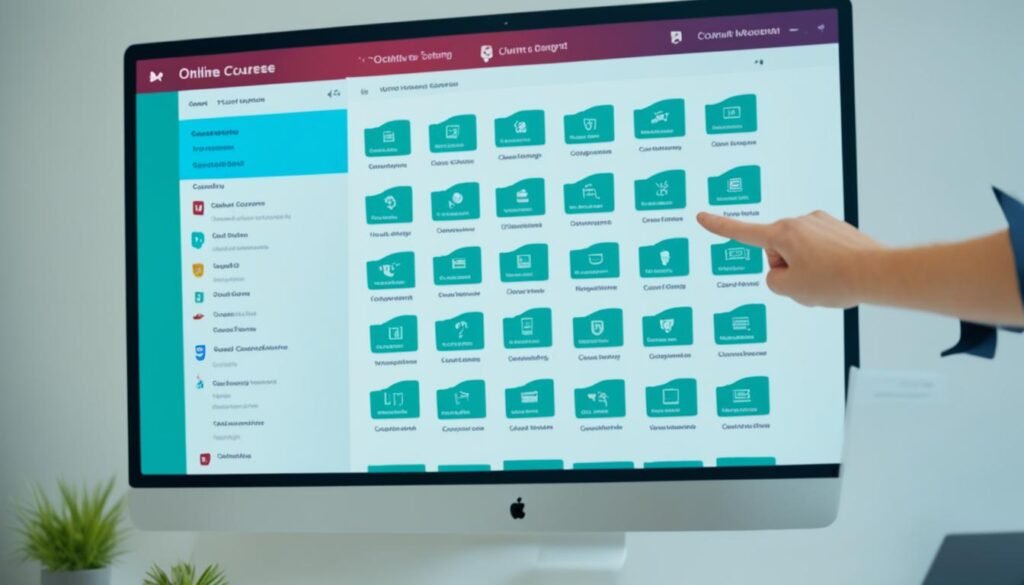Tracing the path to employment after graduation has become increasingly crucial for higher education institutions in the Philippines, especially in the face of a challenging economy. The transition from academic life to the job market can be an arduous journey, particularly for Filipino graduates navigating the current economic landscape.
As the country grapples with high levels of unemployment and underemployment, fresh graduates face a steep uphill battle in finding suitable employment opportunities. The COVID-19 pandemic has further exacerbated the situation, adding greater uncertainties and unprecedented obstacles along the way.
However, despite these challenges, there are strategies and approaches that Filipino graduates can employ to increase their chances of finding work post-graduation. By understanding the unique perspective of the Filipino job market and equipping themselves with the necessary skills and competencies, graduates can navigate the challenging economy and secure rewarding employment opportunities.
Key Takeaways:
- Tracing the employment journey is essential for higher education institutions in the Philippines considering the challenging economy.
- High levels of unemployment and underemployment pose significant obstacles for Filipino graduates in finding work post-graduation.
- The COVID-19 pandemic has further exacerbated the challenges faced by fresh graduates in the job market.
- Strategies and approaches can help Filipino graduates increase their chances of finding suitable employment opportunities.
- Understanding the unique perspective of the Filipino job market and acquiring the necessary skills are crucial for success.
The Impact of the Challenging Economy on Filipino Job Seekers
In the face of a challenging economy, Filipino job seekers are experiencing significant difficulties in finding employment. The Philippines currently grapples with a high number of unemployed and underemployed individuals, intensifying the job market’s competitiveness. Unfortunately, the COVID-19 pandemic has further worsened the situation, posing additional obstacles for fresh graduates in their job search.
One of the key factors contributing to the challenges faced by Filipino job seekers is the lack of soft skills and practical job skills. These skills are often better developed through face-to-face classes and hands-on experiences, which have become limited due to the shift to online learning amidst the pandemic. Consequently, graduates are finding it increasingly challenging to demonstrate their employability to potential employers.
Moreover, fierce competition in the labor market has intensified the struggle for new graduates to secure employment. With limited job opportunities available, employers often prioritize rehiring previously laid-off employees, further reducing the prospects for fresh graduates. As a result, many young job seekers find themselves caught in a cycle where they lack the experience required for employment, but cannot gain that experience without being given a chance.
The impact of the challenging economy on Filipino job seekers cannot be underestimated. It is vital for both the public and private sectors to come together to address this issue and provide opportunities for graduates to enter the workforce. By offering mentorship programs, internships, and job readiness training, employers can help enhance the employability of fresh graduates. The government can also play its part by implementing policies that promote job creation and foster an environment conducive to economic growth.
As the economy continues to recover, Filipino job seekers must remain resilient and adaptable. It is essential for graduates to continuously develop their skills and stay updated with industry trends. While the road may be challenging, Filipino job seekers have the potential to overcome these obstacles and secure meaningful employment opportunities.

The Importance of Soft Skills in the Workplace
Fresh graduates in the Philippines are facing difficulties in finding employment due to the lack of soft skills, according to a situational report by the Commission on Human Rights. Soft skills such as empathy, creativity, resilience, and communication are essential for success in the workplace. The report highlights the need for more attention to be given to developing these skills, as they are equally important as technical competencies.
Employers recognize the value of soft skills in job performance and expect graduates to possess these skills. While technical knowledge and qualifications are important, employers understand that soft skills play a vital role in employee productivity and job satisfaction. In fact, a study conducted by LinkedIn found that 92% of recruiting professionals believe that soft skills are just as important, if not more important, than technical skills when hiring candidates.
Soft skills not only contribute to effective teamwork and collaboration but also enable individuals to adapt to changing workplace dynamics and challenges. They enhance interpersonal relationships, customer service, and problem-solving abilities. Therefore, it is imperative for graduates to develop and showcase their soft skills to increase their employability in today’s competitive job market.

The Challenges of Online Learning for Filipinos in the Job Market
The shift to online learning during the pandemic has presented unique challenges for Filipino students, particularly when it comes to developing practical job skills. According to a report by the Commission on Human Rights, face-to-face classes provide better opportunities for students to hone their skills through hands-on experiences. However, with the limitations of online learning, many graduates are finding it difficult to translate their acquired knowledge into practical applications in the job market.
One of the key issues highlighted in the report is the lack of awareness among graduates about job openings and the application process. In-person orientations and job fairs, which were common before the pandemic, used to provide valuable networking opportunities and insider information about available positions. Without these in-person events, graduates are often left in the dark, struggling to navigate the job market on their own.

Recommendations for Addressing the Challenges Faced by Filipino Graduates
Addressing the challenges faced by Filipino graduates requires a comprehensive approach that involves various stakeholders. The Commission on Human Rights report highlights several recommendations to help mitigate these challenges and improve the employment prospects for graduates.
Firstly, it is crucial to establish partnerships between the government and private sector. By collaborating, these entities can create more job opportunities and facilitate connections between students, graduates, and potential employers. Such partnerships can also help identify the current needs of industries, enabling curriculum adjustments to align with the demands of the job market.
Another key recommendation is to review the curriculum of the K-12 program. By ensuring that the educational content reflects industry requirements, graduates will be better equipped with the necessary skills and competencies valued by employers. This alignment between education and industry needs will enhance the employability of Filipino graduates.
In addition, enhancing career guidance programs in schools is essential. By providing comprehensive and practical career guidance, students can make informed decisions about their educational paths and career choices. Accessible and up-to-date information about job opportunities and potential career paths will enable graduates to navigate the job market more effectively.
Furthermore, it is crucial to emphasize the importance of equipping students with the skills and competencies required to thrive in the job market. This includes both technical skills specific to their respective fields and soft skills that are transferable across industries. By prioritizing the development of these skills, Filipino graduates will be better prepared to address the challenges and requirements of the evolving job market.
Implementing these recommendations will require collaboration between the government, educational institutions, and other relevant stakeholders. By working together, we can create an environment that supports the success of Filipino graduates, ensuring their smooth transition into the workforce and contributing to the overall growth and development of the nation.

The Role of Higher Education Institutions in Developing Employability Skills
Higher education institutions play a crucial role in equipping students with the employability skills needed to succeed in the challenging job market. According to a study conducted by the International Journal of Research in Education and Science, it is essential for classroom instruction to focus on the development of 21st-century skills.
These skills include critical thinking, problem-solving, communication, and collaboration, which are highly valued by employers in various industries. By actively integrating these skills into their curricula, higher education institutions can better prepare graduates for the demands of the professional world.
Not only do these skills enhance graduates’ competitiveness, but they also significantly improve their employability. Employers are increasingly seeking candidates who possess a strong foundation in these areas, as they contribute to better decision-making, innovative problem-solving, effective teamwork, and clear communication within the workplace.
By aligning educational programs with the needs of the job market, higher education institutions can bridge the skills gap and provide students with the practical knowledge and abilities required for their chosen fields. This proactive approach not only benefits individual students but also contributes to the overall economic growth and development of the country.
Moreover, higher education institutions have a responsibility to continuously update their curricula to reflect the evolving demands of the job market. By staying abreast of industry trends and integrating the latest technologies, institutions can ensure their graduates possess the relevant skills and knowledge that employers are seeking.
Empowering Graduates for Success
Higher education institutions have a unique opportunity to shape the future of their students by focusing on the development of employability skills. Through practical and experiential learning opportunities, internships, and industry collaborations, institutions can provide graduates with a competitive edge.
By fostering a learning environment that values critical thinking, problem-solving, and effective communication, higher education institutions empower their graduates to navigate the challenging job market and succeed in their chosen careers.
The Future of Filipino Graduates in a Difficult Economy
The future of Filipino graduates in a difficult economy is heavily reliant on their ability to adapt to changing circumstances and develop the necessary skills for employment. With the challenges posed by the pandemic and the competitiveness of the job market, graduates must prioritize the acquisition of both technical and soft skills.
Continuous learning and skills upgrading are essential for staying relevant in the job market. Graduates must actively seek opportunities to enhance their knowledge and abilities to meet the evolving demands of the industry. By embracing a growth mindset, they can position themselves as valuable assets for potential employers.
Employers play a crucial role in supporting the future of Filipino graduates. They should engage in collaborative efforts with educational institutions to bridge the skills gap and provide career development opportunities. By offering internships, apprenticeships, and mentorship programs, employers can contribute to the holistic growth and professional advancement of graduates.
Furthermore, educational institutions must continually evaluate and update their curriculum to align with industry demands. By integrating real-world experiences and practical skill-building activities into their programs, institutions can better equip graduates for the challenges that lie ahead.
In a difficult economy, Filipino graduates should take ownership of their future by proactively seeking personal and professional growth. They should seize every opportunity to network, attend workshops, and engage in lifelong learning. By honing their skills and adapting to the changing job market, they can increase their chances of finding employment and achieving long-term career success.
Conclusion
In the challenging economy that Filipino graduates face, finding work post-graduation can be a daunting task. The impact of the COVID-19 pandemic and the transition to online learning has only further exacerbated the difficulties encountered by new graduates. However, it is crucial to recognize the significance of soft skills and practical job skills in the workplace. Employers are in search of graduates who possess 21st-century skills and demonstrate adaptability.
To navigate the hurdles of the job market, Filipino graduates must address these challenges head-on. Developing employability skills and focusing on bridging the skills gap becomes imperative. Despite the uncertainty, the key lies in emphasizing the importance of acquiring the necessary competencies. By doing so, Filipino graduates can enhance their chances of securing employment in a challenging economy.
It is crucial for graduates to recognize that adaptability and continuous learning are vital in the face of a difficult job market. Bridging the skills gap requires collaboration between employers and educational institutions. Together, they can create a supportive environment for career development and offer the necessary resources and opportunities to enhance graduates’ employability. By staying resilient and proactive, Filipino graduates can position themselves for success in the ever-changing job market.


